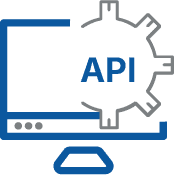In today’s education landscape, it has become imperative for institutions to ensure their students not only achieve academic success but also complete their studies. Low dropout rates are often seen as a measure of a school’s success, indicating their ability to help students grow into effective learners. On the other hand, low retention rates can signal significant problems that may lead to a decline in the institution’s popularity and financial performance.
In this regard, data analytics has emerged as a powerful tool for driving student success. By transforming data into actionable insights, educational institutions can make evidence-based decisions, provide timely interventions, and foster a supportive learning environment.
Predictive Analytics for Early Intervention
One of the most popular applications of data analytics in education is predictive analytics. This approach uses historical and real-time data to develop models that can pinpoint students at risk of dropping out or failing. These insights allow educators to intervene early and provide the necessary support to help students overcome obstacles.
Benefits of Predictive Analytics:
-
- Early Warning Systems: By analyzing data such as attendance, performance, and class participation, institutions can identify students who need intervention and address problems before they escalate.
- Tailored Support: Predictive analytics allows for personalized interventions, including tutoring, counseling, or mentoring services based on individual student needs.
- Resource Allocation: Schools can use predictive models to distribute resources more effectively, focusing on the areas where support is most needed.
Personalized Learning Pathways
Data analytics also facilitates the creation of personalized learning pathways, ensuring that each student receives the appropriate level of support based on their individual strengths and weaknesses. This customized approach enhances learning outcomes and helps students succeed.
Key Components:
-
- Customized Curriculum: Data-driven insights allow educators to adjust curricula and teaching methods to better match students’ learning styles, improving knowledge retention.
- Adaptive Learning Technologies: These technologies dynamically adjust content and practice sessions based on student performance, helping every learner excel.
- Ongoing Assessment: Continuous evaluation of student progress enables instructors to adjust their teaching strategies as needed, keeping students engaged and on track.
Enhancing Student Engagement
Student engagement is critical to retention and overall success. By leveraging big data, educational institutions can gain insights into how to enhance student engagement both inside and outside the classroom.
Strategies for Enhancing Engagement:
-
- Interactive Learning Environments: Data on student interactions with digital learning platforms can inform the creation of more engaging, interactive content.
- Extracurricular Activities: Data analytics can help schools understand student preferences and recommend extracurricular activities that align with their interests, fostering a sense of belonging.
- Personalized Feedback: Regular feedback on student progress keeps them motivated and engaged in their academic journey.
Case Studies
- Georgia State University: Georgia State successfully increased student retention by using an AI tool called “Pounce.” This software engages students with real-time responses, sends timely notifications, and even helps with administrative tasks, reducing dropout rates.
- Mount St. Mary’s University: By employing predictive analytics, Mount St. Mary’s University tracks at-risk students and provides targeted support, resulting in improved retention and student success.
Ethical Considerations
While data analytics has proven effective in enhancing student success, several ethical and privacy concerns must be addressed.
Key Considerations:
-
- Data Security: Protecting student identities is critical. Institutions must implement measures to safeguard student information and prevent data breaches.
- Informed Consent: Schools must be transparent about how they collect and use student data, ensuring that students and parents provide informed consent.
- Bias and Fairness: To ensure equitable treatment, predictive models must be free from bias and subject to regular audits to maintain fairness.
Types of Data in Education
Educational institutions gather a wealth of data that can be used to improve student outcomes and retention.
-
- Academic Performance: Test scores, coursework completion, and assignment data provide insights into student learning and achievements.
- Attendance: Attendance records help identify patterns of truancy, which may indicate disengagement.
- Engagement Metrics: Data on classroom participation, extracurricular involvement, and digital platform usage measure student engagement levels.
- Behavioral Data: Disciplinary records and other behavioral indicators reveal areas where students may need additional support.
- Social Determinants of Education: Socioeconomic status, family background, and other contextual factors can help educators understand external influences on student performance and retention.
Future Trends in Data Analytics for Education
As data analytics continues to evolve, several trends are shaping the future of student success and retention.
-
- Real-Time Data Dashboards: Educators will have access to real-time data on student performance, allowing for quicker interventions.
- Integration of AI and Machine Learning: AI and machine learning technologies will refine predictive models, making them more accurate in identifying student needs and behavior patterns.
- Holistic Data Integration: Future systems will combine academic, behavioral, and social data to provide a more comprehensive view of student success factors.
Conclusion
Data analytics is revolutionizing the education industry by providing institutions with the tools and insights needed to improve student engagement, performance, and retention. With these capabilities, educators can make informed decisions, implement timely interventions, and offer learning opportunities tailored to individual needs.
At vNex, we are committed to delivering innovative and effective data analytics solutions that support both educators and students. Discover how our unique tools can help your institution enhance student success and retention efforts. Together, we can build a brighter future for education.





















